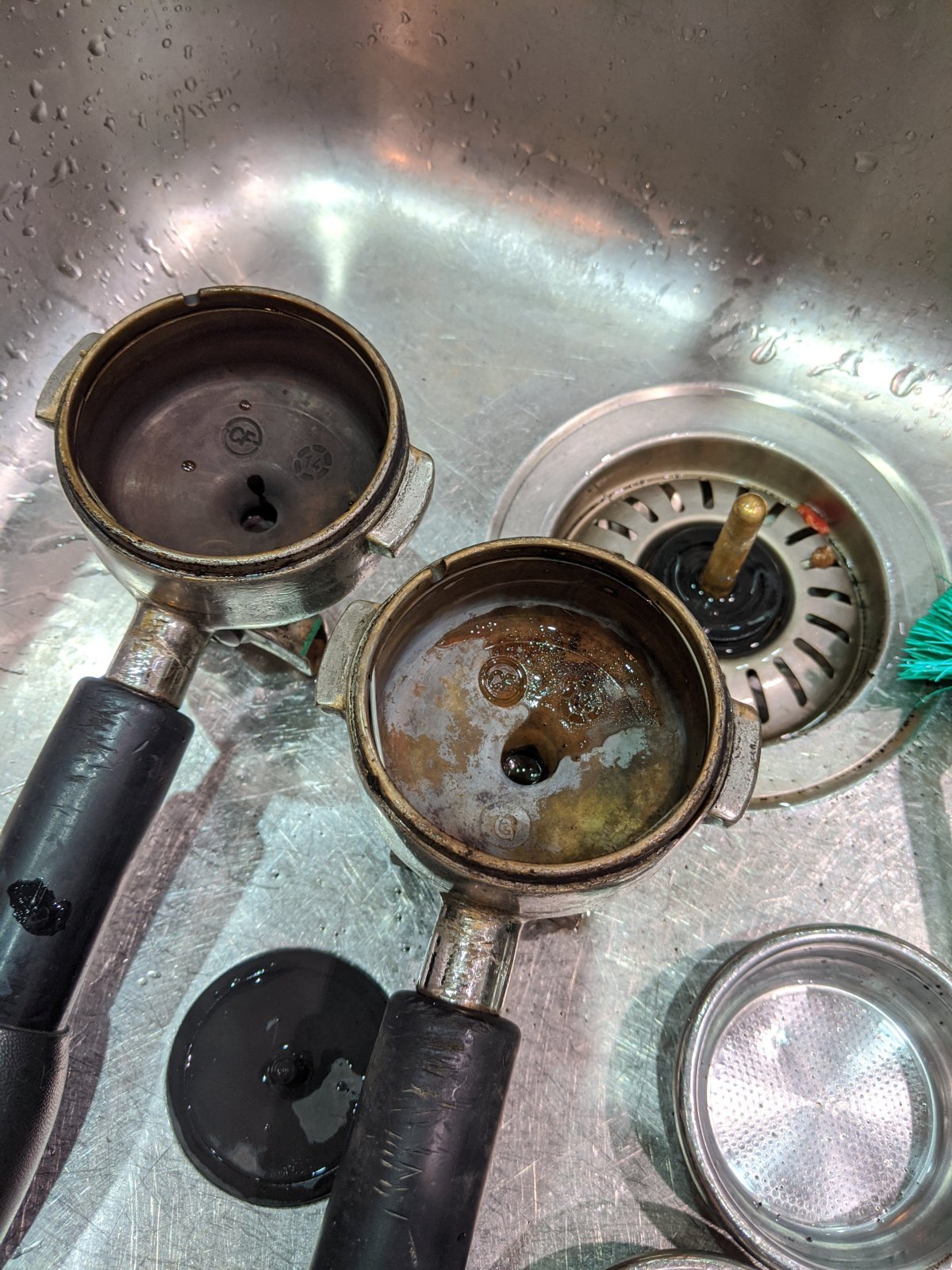After working as a barista in various places since our return to the Netherlands in July 2019, I’ve learned that the coffee business is vastly better here than on Sint Maarten. The beans, the machines and the skills of the baristas working there are much better than there.
But what’s surprised me the most is that most places stopped after buying better quality beans or investing in a good machine.
Many places shamelessly use the same beans for espresso as well as “gewone koffie”, the historical Dutch name for normal coffee meaning filter coffee that our parents and grandparents used to make.
Some establishments use at least a different grinder when making “koffie”. But they opt using the same espresso machine because it’s there, so the “koffie” is most often approximated by a lungo.
A few use both a different bean as well as a separate grinder. A conscious decision. But I fail to understand why you don’t simply make “koffie” using a filter method?! After all, if it is about the money, and I think it is, then the math of making a liter of coffee from 57-63g of ground coffee is always better than turning 17-19g of the same coffee into 50ml of espresso or 90-100ml of “koffie”. Right?
And if you decide to use different beans for espresso and “koffie”, because of flavor I assume, then how come you don’t use different beans for cappuccino? After all, roughly 70% of coffee drinks sold in the Netherlands are “white coffees” aka milk-based coffees such as flat white, cappuccino, latte macchiato and large lattes.
I’m often disappointed by what I find in espresso bars during my Temper shifts. Large 3 group machines supplied by a caterer and left to more and more careless baristas who’s level of care and quality goes down by the month when management is not present, training is no longer provided and customers don’t know better.
Granted, many people working as barista are students either during the studies or directly after, earning money for leisure time, travel plans or settling down. They learn on the job while doing it and some of them are truly gifted and highly skilled by intuition. Nothing wrong with that. But as soon as they leave, and there’s always a better laying barista position coming next month – turnover is a bitch – knowledge is drained and whoever is left in charge has to pick up the slack. But pay is low, pressure is high and people don’t seem to care or know.
I’ve been searching for a better place to make excellent coffee now for 2 months and every place that I’ve talked to is stuck to bean contracts, doesn’t want to invest anything further and can’t train the people with SCA courses.
Well you can’t have it both ways! You want cheap high quality coffee fast, but you only pick two at any time. Not three. Skilled baristas cost more, care for the equipment, as well as customers. They know how to tweak the machine on a daily or even hourly basis to result in the best quality coffee.
Nothing makes a barista more happy than a great clean machine, new grinder or a kilo of fantastic beans to try out. Reward staff with perks, not salary. The effect is the same, if they truly love their jobs. Hire a legendary barista or roaster to give a workshop and spark their interest again, relight that fire (no, don’t go there!) and give the team a new boost of energy.

